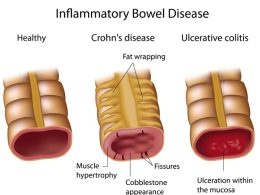Differences between cognitive decline and aging
Aging is associated with a deterioration in the functioning of our higher functions (cognitive), that is, the alteration of intellectual and cognitive functions such as memory, attention or language, among others.
Cognitive impairment must be differentiated from the impairment of normal aging, or associated with age. However, differentiating both processes is not always easy since this decline is not homogeneous and there may be significant intervariability between the population.
On the other hand, cognitive alterations (although not always) can be the prelude to dementia. Dementia is a disease characterized by a progressive loss of mental faculties (cognitive and/or behavioral), for which the patient requires help to be able to carry out their basic activities in daily life. It is also known by the term “major neurocognitive disorder”.
Differences between cognitive impairment and dementia
Dementia
Although the most frequent dementia is associated with advanced age, “senile dementia” is not an appropriate term since it can appear at younger ages. On the other hand, the majority of dementias in a large part of patients over 65 years of age are due to Alzheimer’s disease , so the terms Alzheimer’s tend to be equated with dementia and senile dementia, creating some confusion.
causes of dementia
- Alzheimer’s disease: Alzheimer’s disease is a neurological disease that is included within the group of dementias. It is the most common type of dementia. It is characterized by impaired memory, thinking, and behavior. It is the most common type of dementia.
- Vascular dementia: due to multiple cerebral infarcts.
- Dementia with Lewy bodies (DLB): type of degenerative dementia in which there is an abnormal degeneration of proteins with deposits in certain areas of brain tissue.
- Frontotemporal lobular degeneration (FTLD): encompasses a group of diseases in which dementia generally does not affect memory until late stages.
- Dementia associated with Parkinson’s disease .
dementia symptoms
As for the symptoms of dementia, there is a predominance of alterations in behavior and personality, memory loss and difficulty performing daily tasks (known as apraxia), as well as speech and expression with clear progressive repercussions. , as symptoms progress, in daily life.
cognitive impairment
Mild cognitive impairment is a syndrome, that is, a set of symptoms that fall between normal aging and dementia. It differs from dementia in that, although different areas of the brain such as memory, language and behavior are affected, they do not pose a difficulty in the patient’s daily life and they can continue to carry out their usual activity in a practically normal way.
| normal aging | mild cognitive impairment | Dementia | |
| patient complaint | Frequent | may not exist | may not exist |
| Memory alterations | episodic memory, working memory | Complaints of memory failure (episodic) | interfere with normal functioning |
| Language | Difficulty finding the right word | Deterioration (denomination and creep) | Altered (difficulty finding words, decreased comprehension) |
| Other alterations | Lower processing speed | Alterations in carrying out activities, visuospatial function | prevent normal life |
| Activities/functioning daily life | Absent | No or mild interference with activities/functioning daily life | Altered functioning of daily life |
| Mood changes (depression, sadness) | Absent | Frequent | Frequent |
How is the diagnosis made?
The diagnostic evaluation of any cognitive disorder is the responsibility of the specialist in neurology . The family doctor can make an initial assessment and, based on this, refer the patient to a neurologist.
mild cognitive impairment
- For the diagnostic process, the clinical history is essential, that is, an interview with the patient and family members that helps collect the symptoms, their onset and evolution, and their interference in daily life.
- Physical exploration.
- Functional assessment of the patient (degree of autonomy) through a series of scales.
- Complementary tests: laboratory tests, neuroimaging tests such as CT/MRI.
- More specific tests: Neuropsychological tests.
In Alzheimer’s disease, in addition to these tests, biological markers/biomarkers (such as amyloid beta) and brain SPECT are also indicated.
Early diagnosis vs risk of dementia
Early detection is important, especially to differentiate the deficits that may appear during normal aging and those associated with diseases such as those mentioned.
There is no clear marker to determine those patients with mild cognitive impairment who may develop dementia . Markers (neuropsychological and biological) that can be used for the diagnosis of patients with a higher risk of developing Alzheimer’s disease are being studied. Some of these biological markers include genetic tests and determinations of specific proteins in the cerebrospinal fluid.
Some characteristics have been associated with a higher probability of progression to dementia, such as clear confirmation of memory difficulties by a reliable informant/relative, changes in abilities to carry out daily tasks, neglect of personal hygiene, or depression.
Treatments and prevention
There is currently no treatment to cure cognitive disorders. In certain types of diseases with associated dementia in which a very targeted treatment can be carried out (such as certain vitamin deficiencies) today there is no curative treatment for dementia, there are drugs that help slow its progression, control symptoms associates and therapies such as cognitive stimulation aimed at stimulating different intellectual capacities of the patient.
There is also no preventive treatment to prevent mild cognitive impairment from progressing to dementia. General recommendations include:
- Healthy diet.
- Physical exercise.
- Cognitive stimulation.
What you should know…
- The majority of dementias in most patients over 65 years of age are due to Alzheimer’s disease, so the terms Alzheimer’s tend to be equated with dementia and senile dementia, creating some confusion.
- Early detection is important, especially to differentiate the deficits that may appear during normal aging and those associated with diseases such as those mentioned.
- There is currently no treatment to cure cognitive disorders. There is also no preventive treatment to prevent mild cognitive impairment from progressing to dementia, although it is recommended to follow a healthy diet, exercise and keep the mind stimulated.









